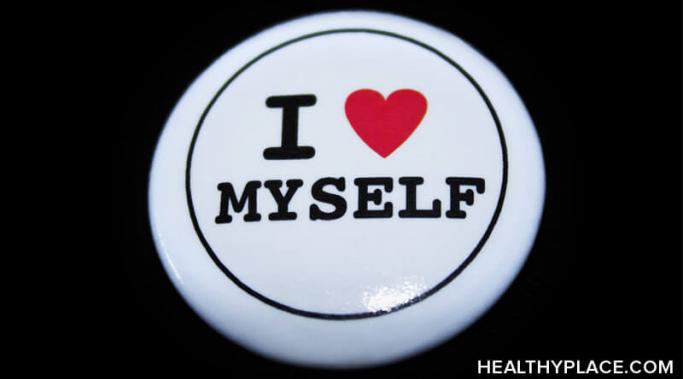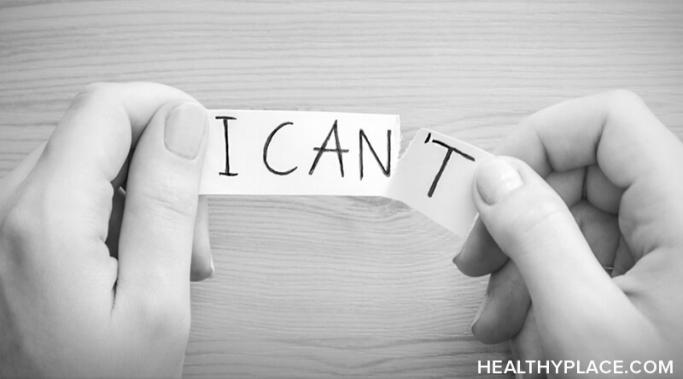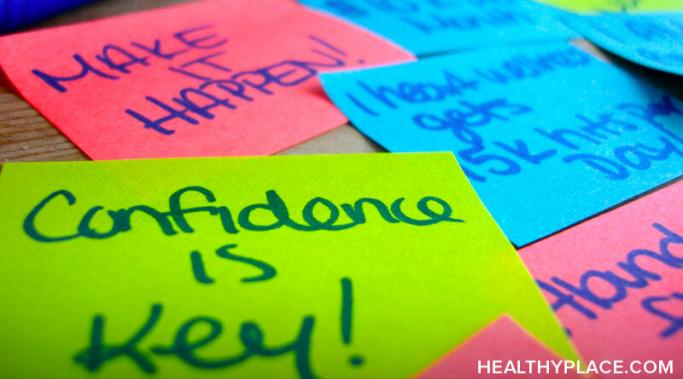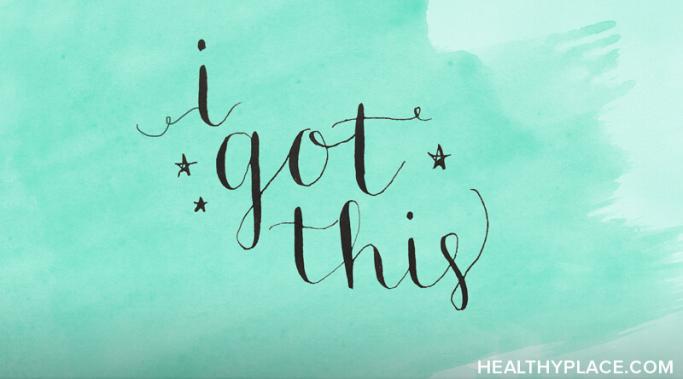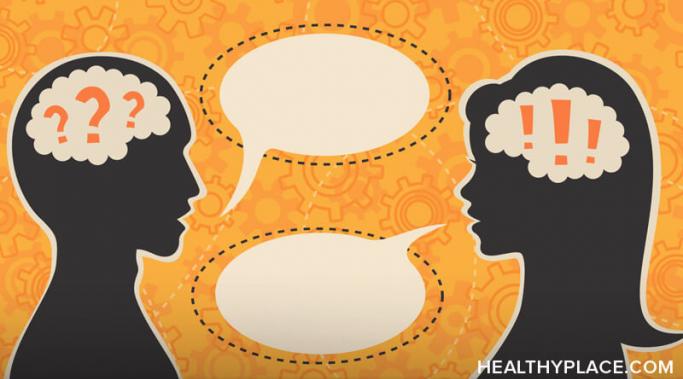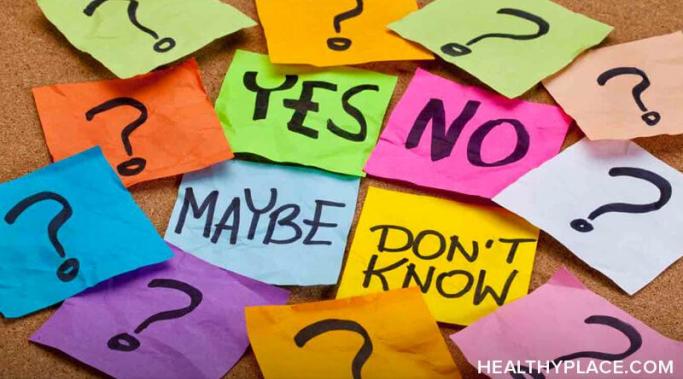Creating a plan of action for self-esteem building increases your chance of creating healthy self-esteem. Once you develop both the awareness that your self-esteem is low and the desire to improve the way you think of yourself, you are ready to craft a solid action plan to build your self-esteem.
Achieving Your Goals
Mindfulness can help you build strong self-esteem in part because mindfulness is the practice of focusing on one thing at a time. When your mind jumps around from one thing to another, it's difficult to make progress on any one task. This can lead you to feel inadequate and incompetent. Learn to practice mindfulness and you will find yourself completing more tasks with fewer errors, and your self-esteem will blossom.
A self-esteem affirmation is a positive statement about yourself that, when practiced regularly, can improve your image of yourself. We believe what we hear repeatedly, and when we replace negative self-talk with positive affirmations we can change our belief that we are less worthy of love and happiness than others.
Setting reasonable expectations for yourself can create healthy self-esteem, while unreasonable expectations can negatively affect your self-esteem. When you don't meet your goals, you disappoint yourself and possibly others. If you have healthy self-esteem you trust yourself to fulfill your commitments. I'm going to share how learning to set reasonable expectations for myself made me successful last week and helped me build a stronger sense of self-esteem.
New experiences can bolster self-esteem. I learned this first-hand this week when I received training on new technology for managing my type 1 diabetes. As exciting as it is to be on the cutting edge, my ancient VCR is still unconnected since my recent move because I can't figure out how to attach it to my new cable box. New technology is challenging for me and I was nervous about going in for my training. I am still a bit anxious today as I continue to learn on the job, so to speak, but every day I see tiny little improvements in my diabetes control, and it keeps me motivated. This new experience is strengthening my self-esteem, bit by bit.
Are there any activities to build self-esteem? Yes, there are. In fact, the most common question I get asked about building self-esteem is where to start. Often, we can clearly picture the version of ourselves we desire to embody, yet we struggle to take the first few steps towards it. Self-esteem starts to feel like a massive undertaking, something we can see in the distance but never gets any closer. To help, here are a few fresh new activities to build self-esteem that have worked for several of my clients.
Does seeing a therapist increase self-esteem and the self-esteem building process? While our society is working hard to de-stigmatize the belief that therapy exists only for people in crisis or with chronic mental illness, we still tend to think of therapy as something to help us move from bad to neutral, instead of from neutral to good. Yet therapists are trained to understand how the mind can build confidence and create sustainable change. As you consider adding therapy to your self-esteem journey, read on to learn three ways that therapy can help increase self-esteem.
Vulnerability is not something we normally link with self-esteem. We are much more inclined to picture an impenetrable sort of confidence, a version of ourselves where nothing can breach our walls of strength and self-adoration. Yet vulnerability is not only an incredibly powerful tool for those already on the road towards building self-esteem–it is also a very good place to start.
While we would all love to build our self-esteem as quickly and effectively as we can, sometimes the process feels daunting. When we get lost in the expectations of self-esteem and forget some of the realities that go along with it, we can feel lost. Here are three things to remind yourself about building self-esteem.
What are the signs of self-esteem? What does it feel like to have healthy self-esteem? Is it unconditional adoration of yourself? Is it the confidence you can do anything? Is it the belief that you're beautiful, both inside and out? In an ideal world, we would feel all of these things. But realistically, our relationship with ourselves is complicated–we all have things we like and things we wish weren't a part of us. A completely positive self-view is overly idealistic and, frankly, inauthentic. So, if self-esteem isn't all sunshine and daisies, what is it? And how do we know if we have it--what are the signs of self-esteem?
